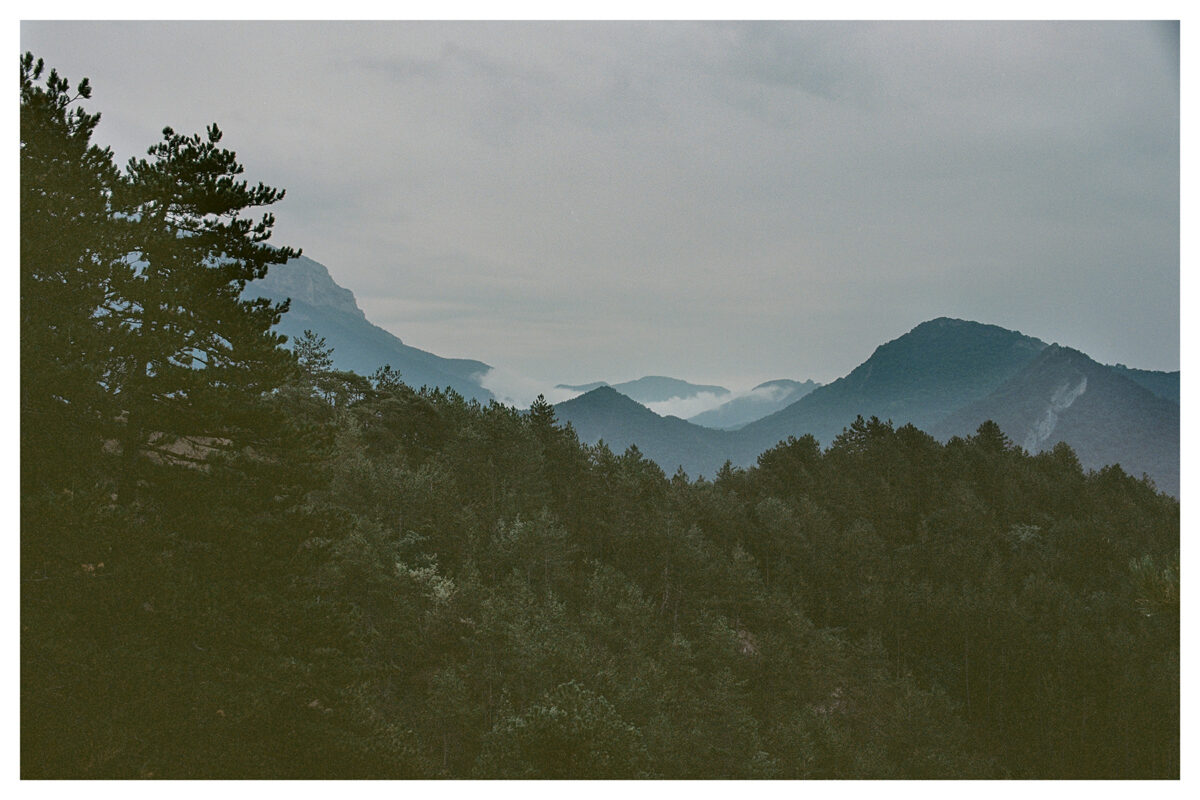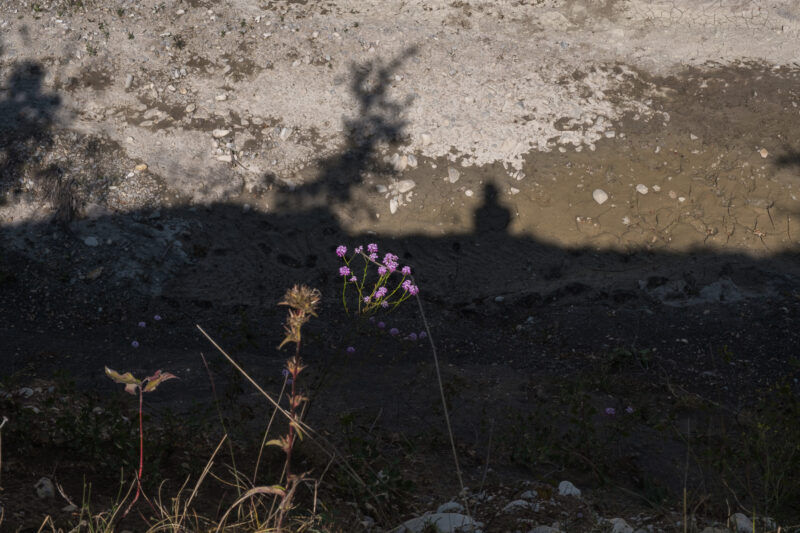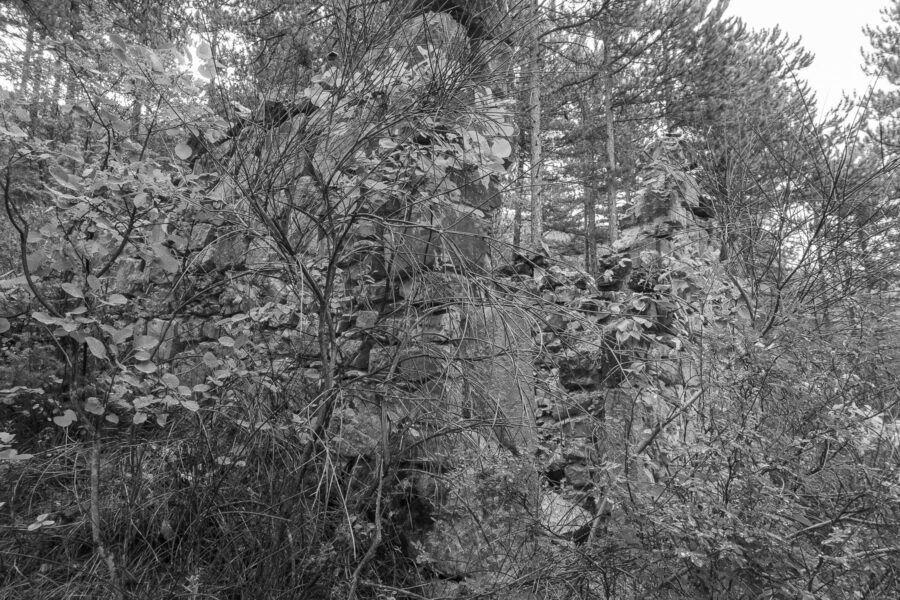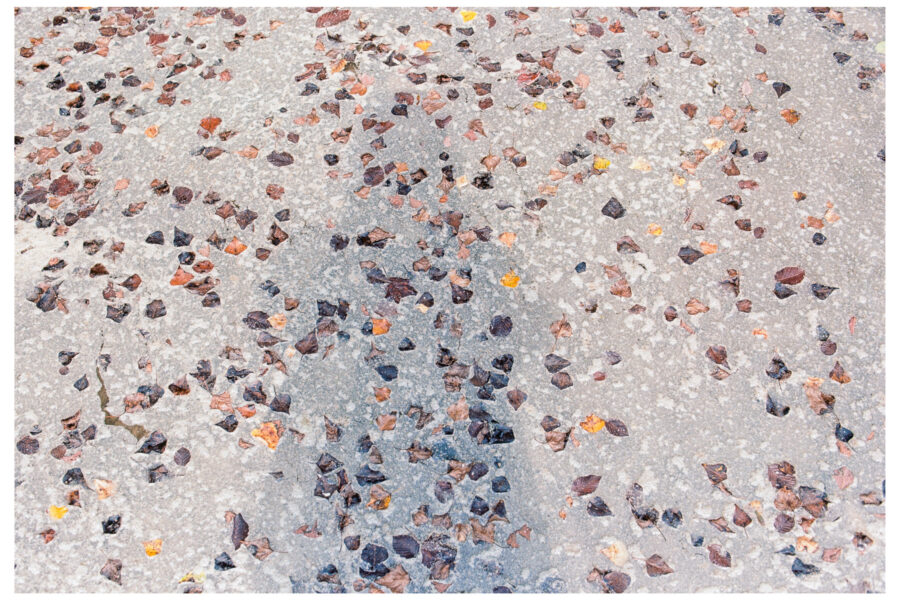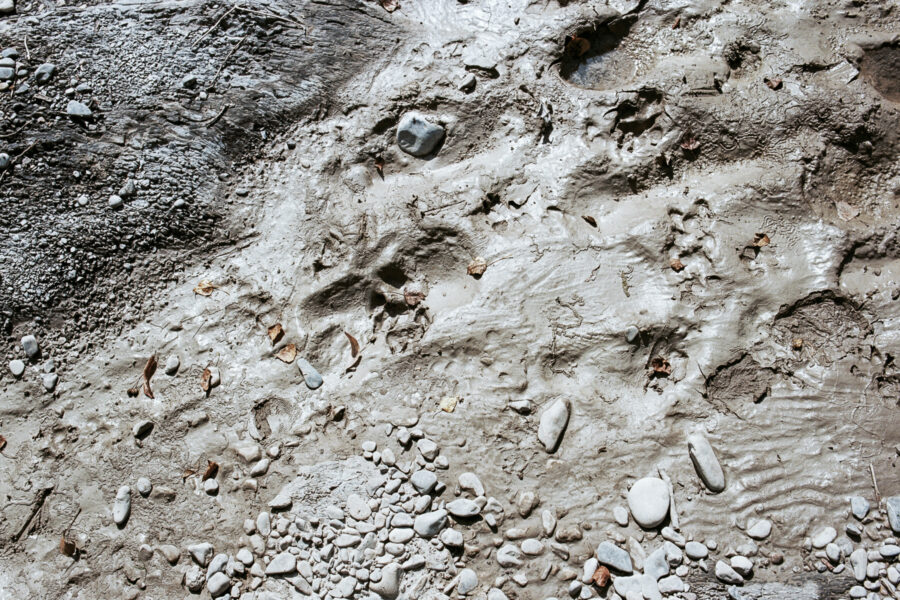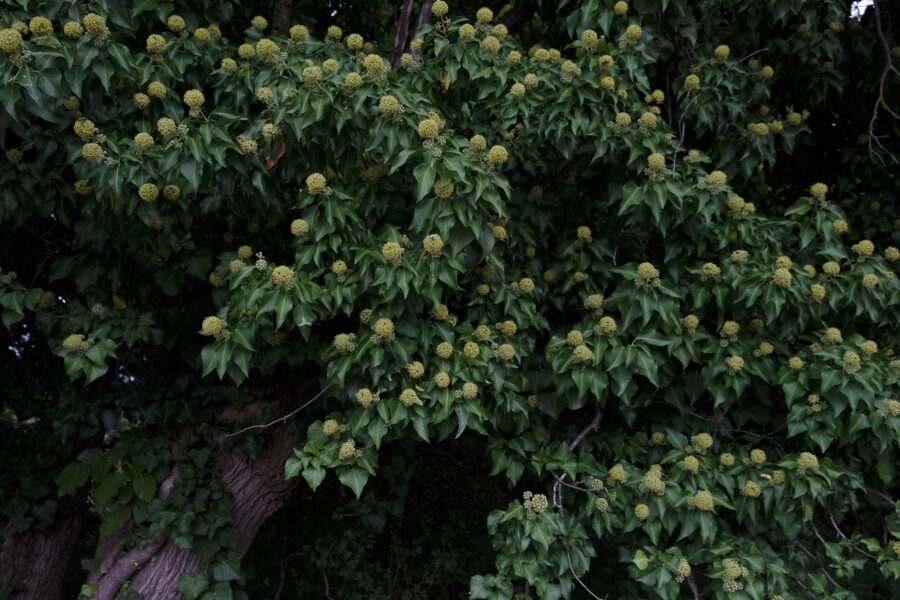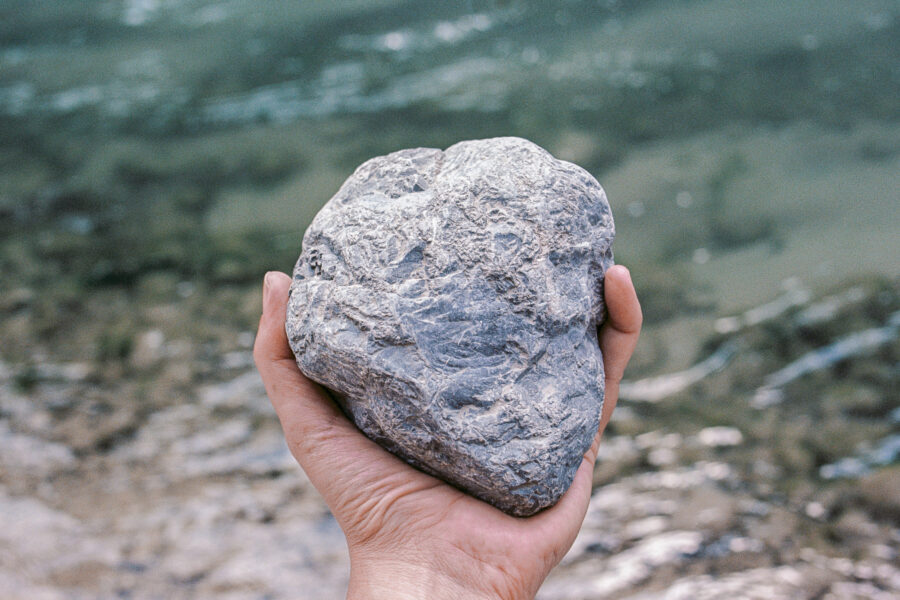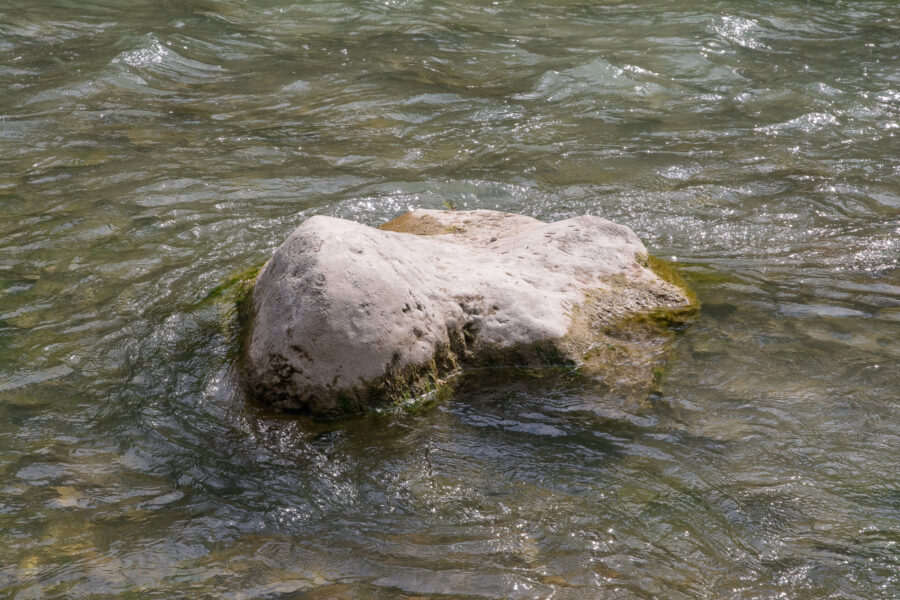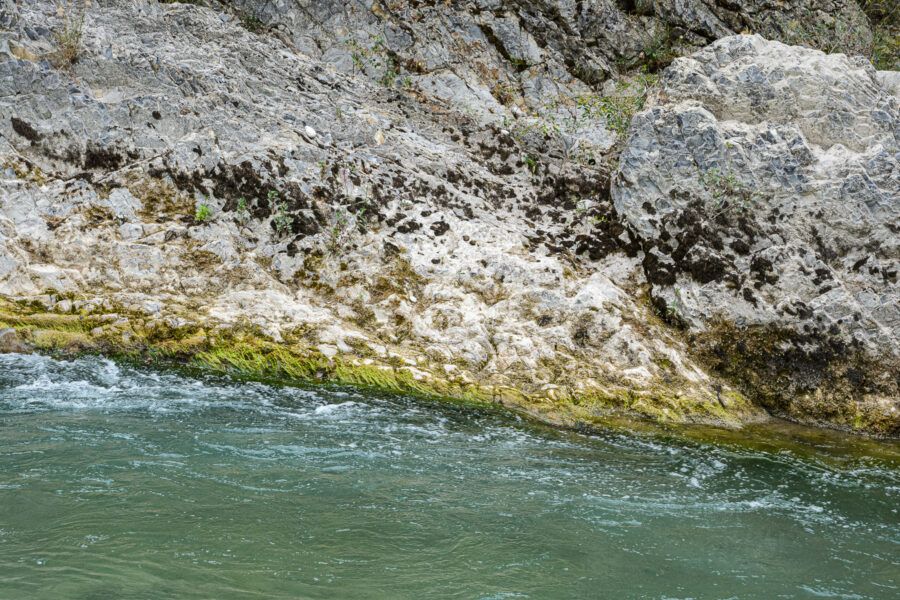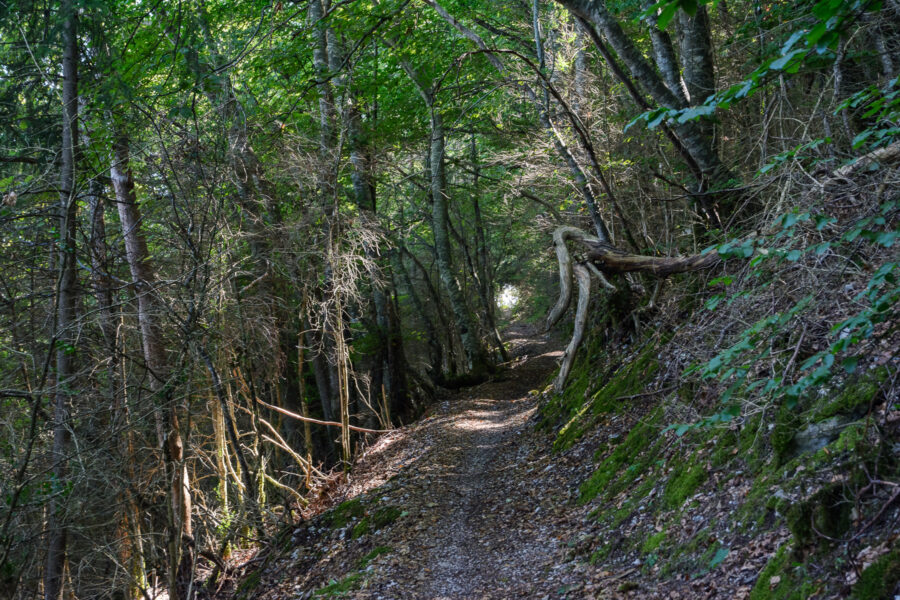But it is September now … / The World so far away (A Postcard from Die)(2021)
Performative Exploration, Documentation, Sketch
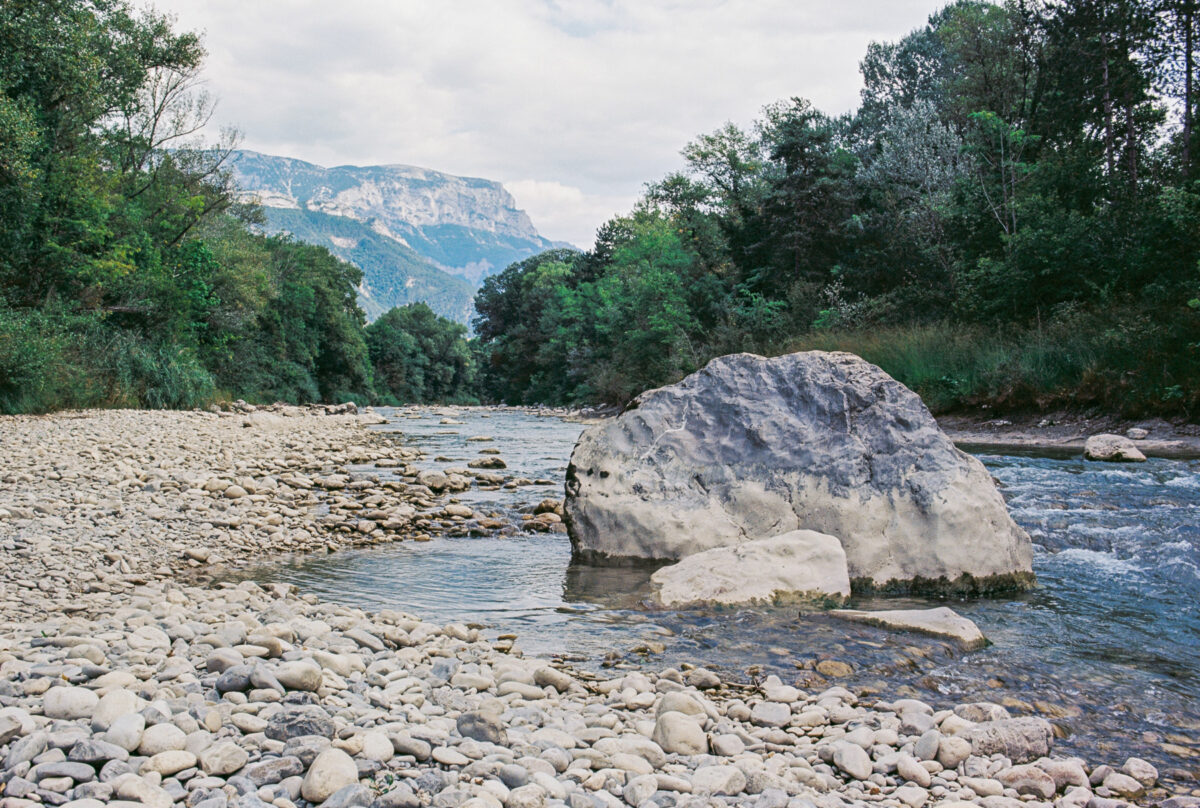
The Story
In September 2021 I was invited to a residency near Die, a village in Southern France. After over a year of pandemic measures this was my first journey to a foreign country and the set-up promised a change of scenery – swapping my city haunts for a more rural setting.
I used the three weeks of my presence there as a framing device for an open-ended pursuit, marking it as both temporary and transitory, bracketing a break. Using movement and photography as my primary investigative methods I explored an unknown territory of another kind – remote country life in an obviously pittoresque landscape where the rest of the world seemed far away. At a later stage text and texture were added.
My main line of activity was to imagine how – under somewhat controlled conditions – one would approach, discover, appropriate that what is unknown. Alas, as an explorer and in the attempt to (re)learn the French language I ventured to find what was out there, neatly along mundane, everyday common-sense categories:
The river, the mountain, the village, the house, the street ..
Whilst walking and cycling, whilst stumbling and poking for hints, a story forms, darkness lurks, ambivalence gathers and amongst fairy tales some of the region’s many lonely or solitary women and their stories surface and are submerged again.
Departing from a collection of local anecdotes the project it ponders about autonomy, solitude, loneliness and alterity and the resulting array invites the viewer to contemplate the relation of subject and world, individual and society, the shadow of death and the continuous flowing of the water in a river. The project will be re-staged in an evolved state at a later point of time (Winter/Spring 2022) together with a short artist publication.
The Village
Postcard View of Die taken from Croix de Justin
with Bibendum (The Michelin Man),
Die is a village with a population of around 5000 people located in the Diois area of the department Auvergne Rhone Alpes at the northern part of the Provence and South of the Vercors plateau. In roman times it was populated by the celtic tribes of the Vocontii. The name Die may derive from the gallic-roman Goddess of victory and battle Andarta (Dea Augusta Vocontiorium). Relics from roman times are still present. Later Die became a episcopal city with a cathedral. Under the influence of Swiss traders the city became influenced by protestantism which during the religious wars, resulted in the displacement of a notable number of people to Switzerland and Germany.
Nowadays the region presents itself as a nature and sports tourism destination and agricultural centre with an emphasis on sustainable farming.
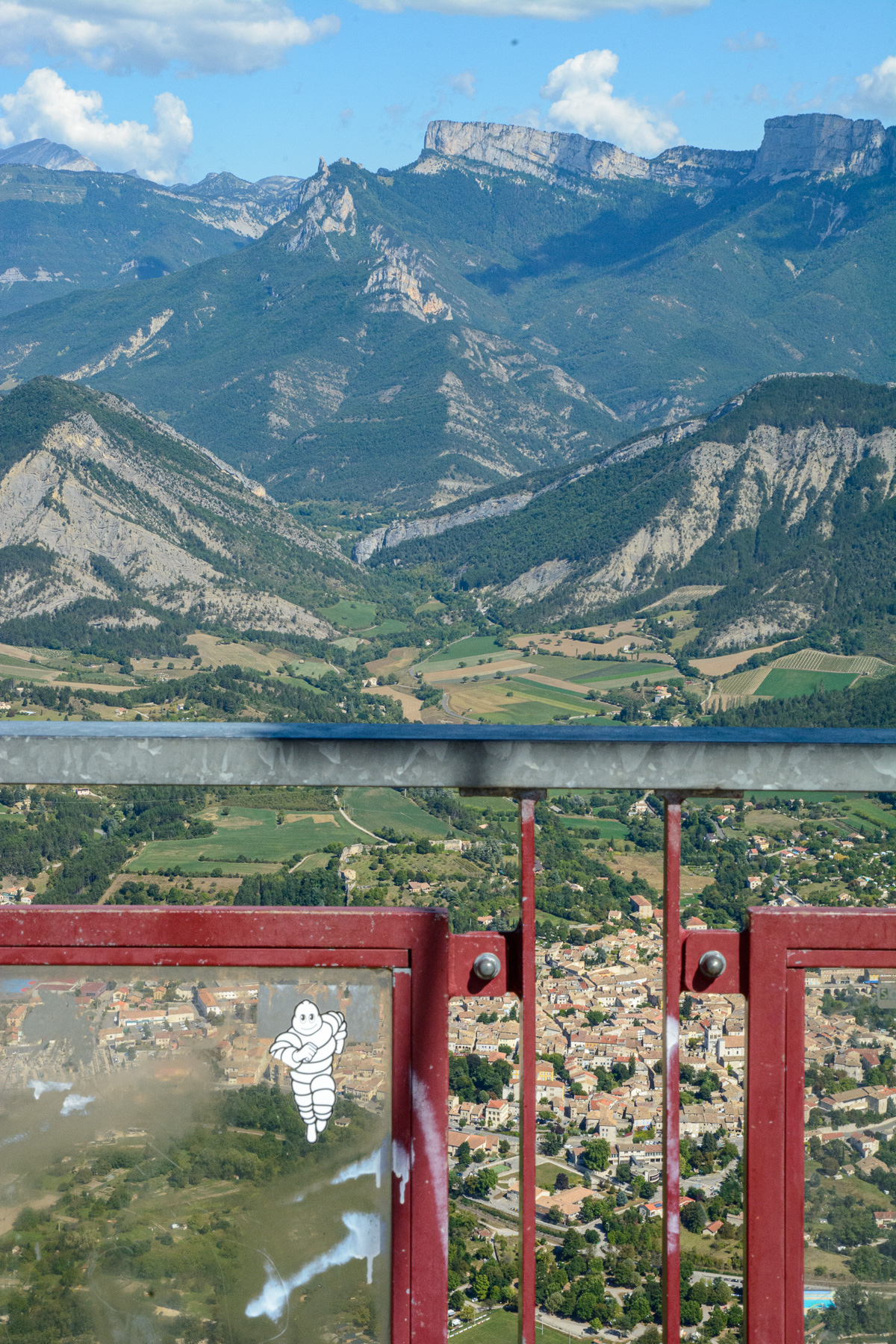
The Set-up
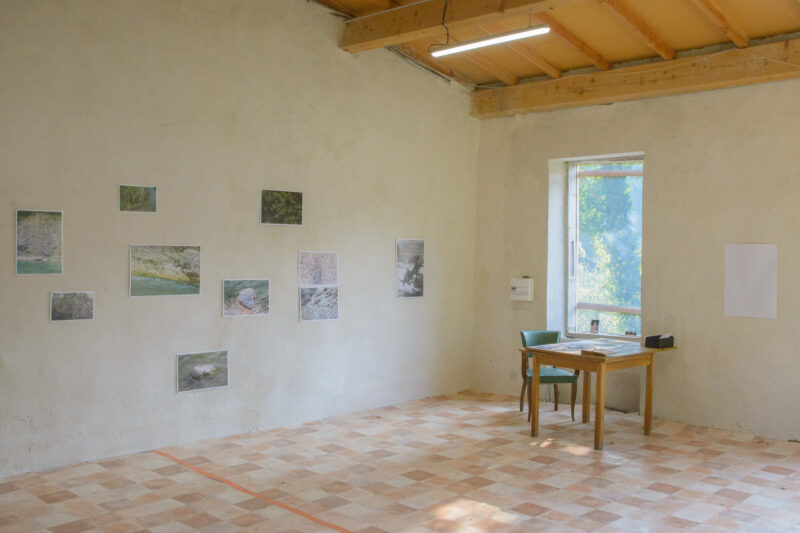
The Walk, the Echo and the Shadow
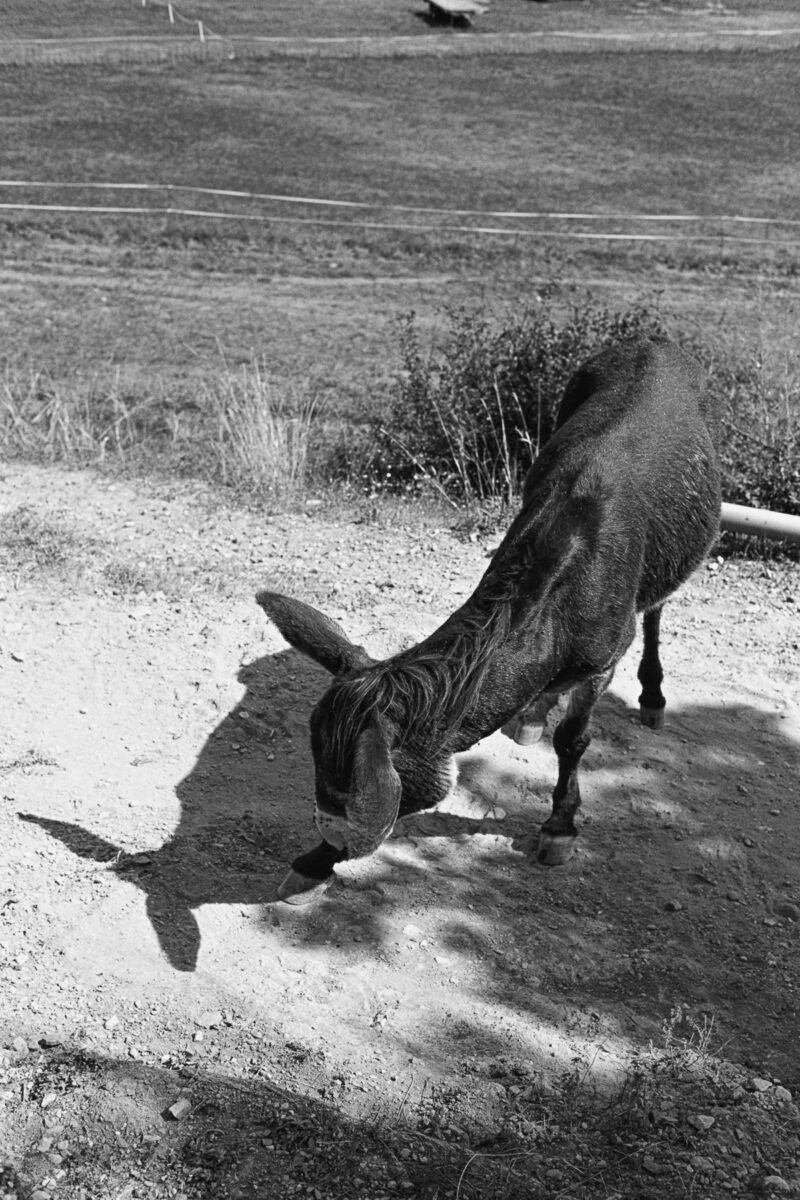
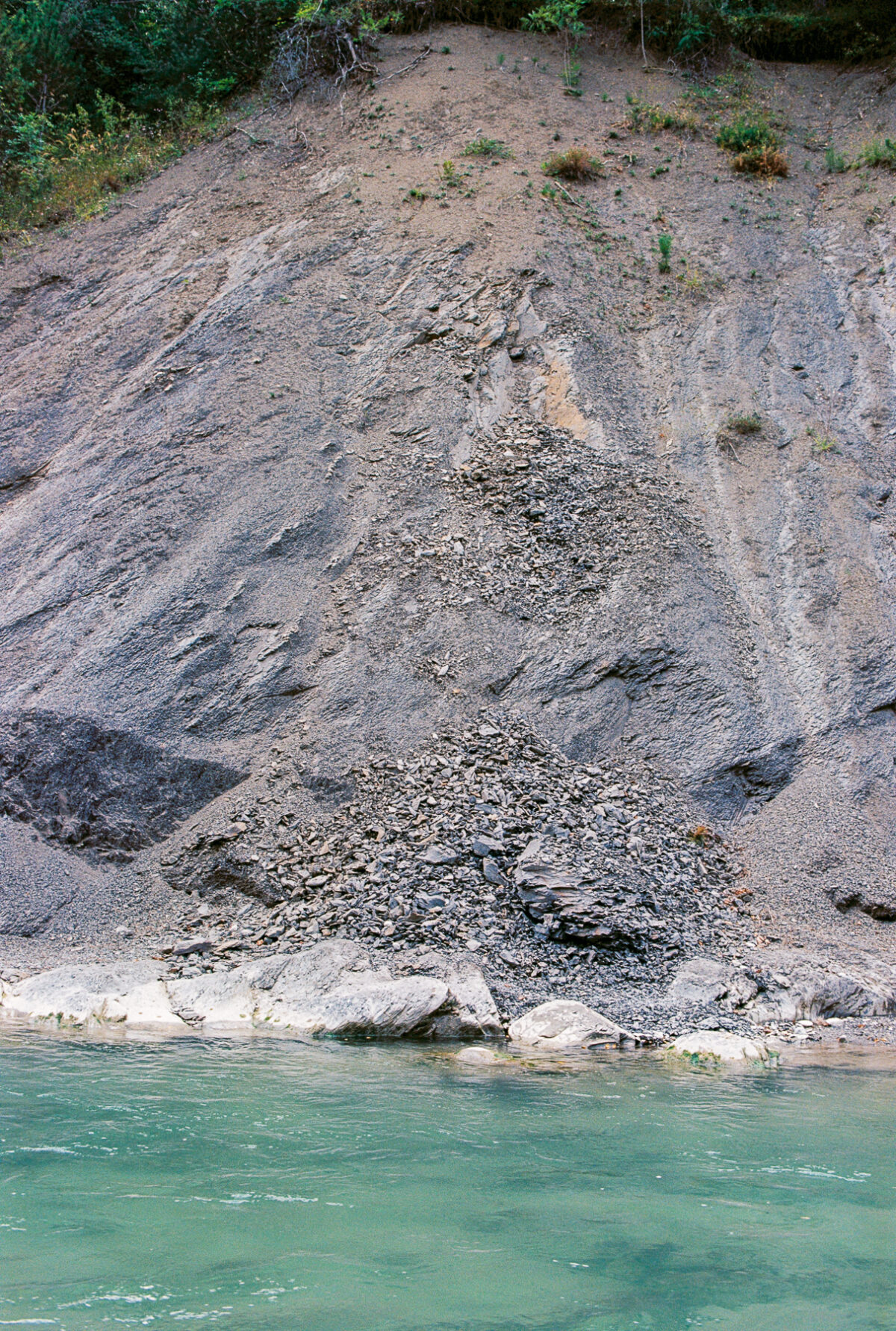
The Book
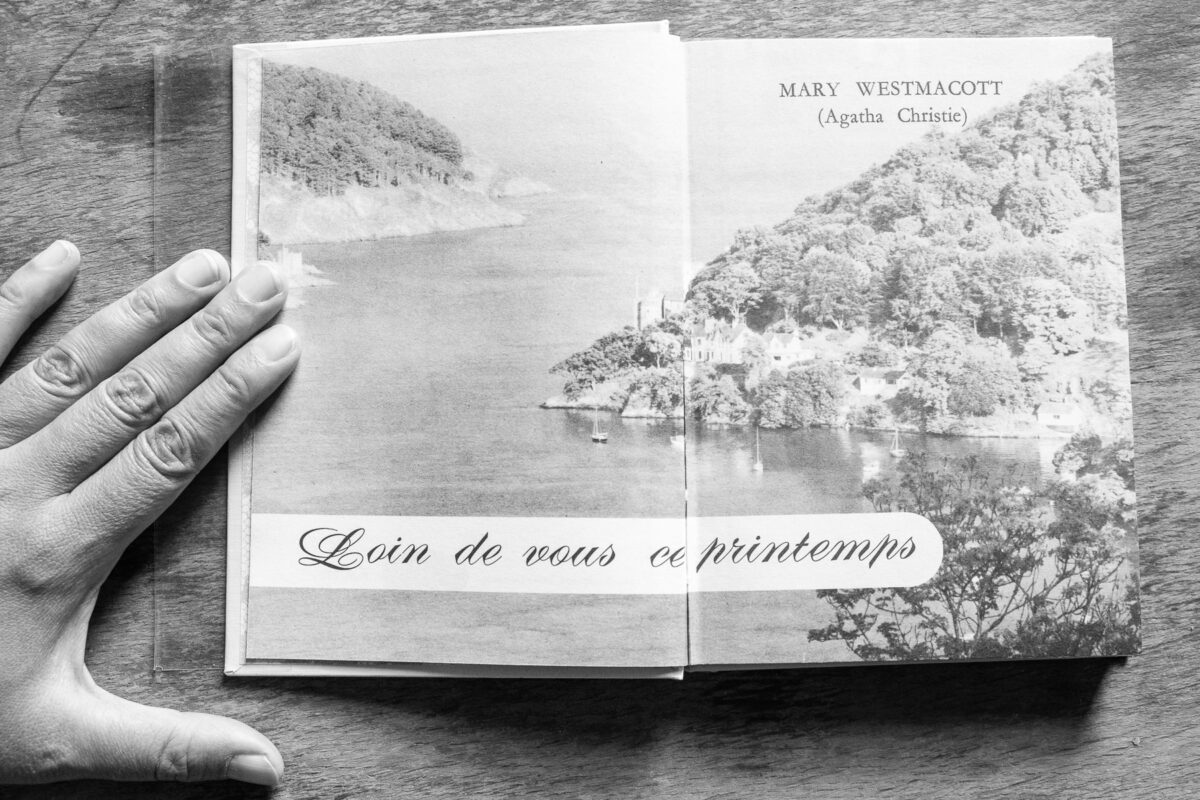
There was a book sitting on the table of the open air studio. Its cover on the outside was decorated with a bouquet of flowers and a snail’s shell – „Loin de vous ce printemps“ it read. It was a psychological novel by the British author Mary Westmacott, better known as Agatha Christie and the title a quote from a sonnet by William Shakespeare .
The book laconically, yet cruelly tells the story of a middle-aged, rather self-content woman, who is forced to face solitude and herself for the first time in her life when she is unexpectedly held-up at a guest house in a foreign country.
So there was another solitary woman. As a consequence or by coincidence the title for the project here derives from this book: Amongst the long list of missed opportunities and conversations going nowhere, stood the poems, walks and a chance conversation that set off many of the protagonist’s unusual trains of thought. In one especially poignant scene of a non-conversation the protagonist’s husband notes:
„“Rough winds do shake the darling buds of May … but it’s October now, isn’t it?“
It was such an extraordingary thing to say that she had stared at him. Then he said: „Do you know the other one? The one about the marriage of true minds?““
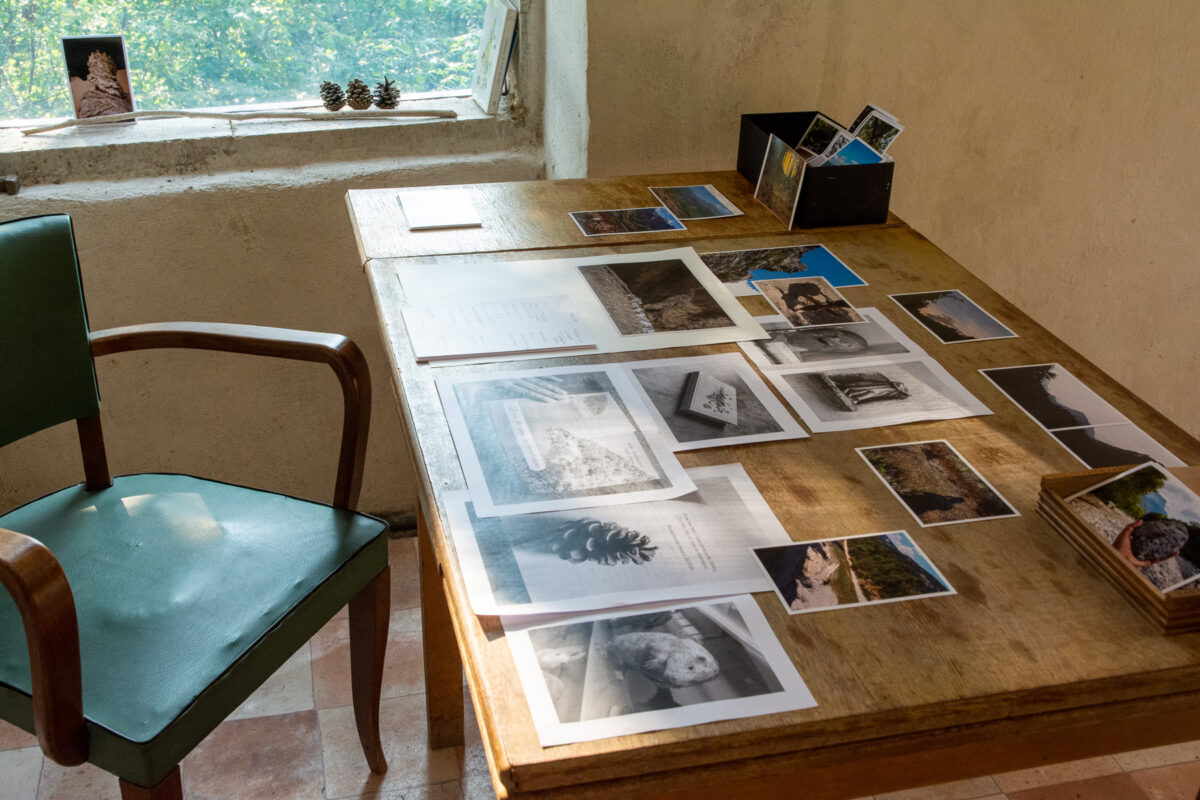
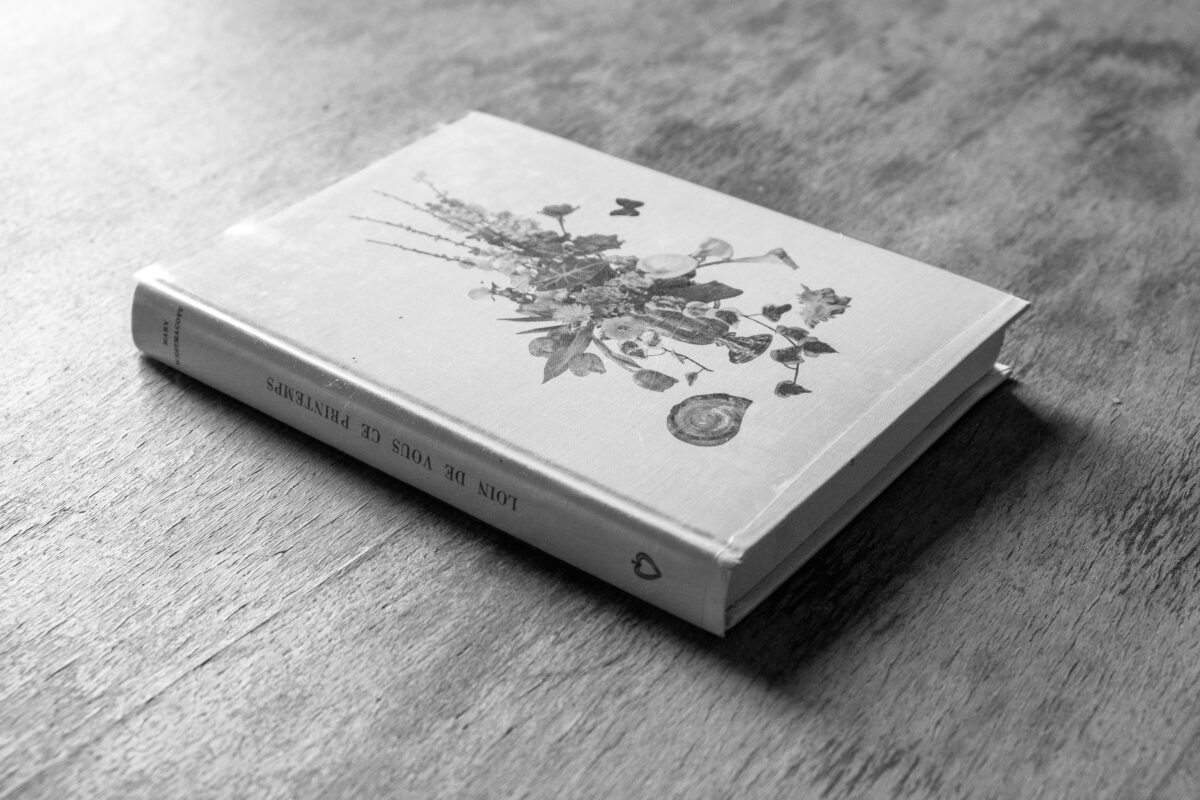
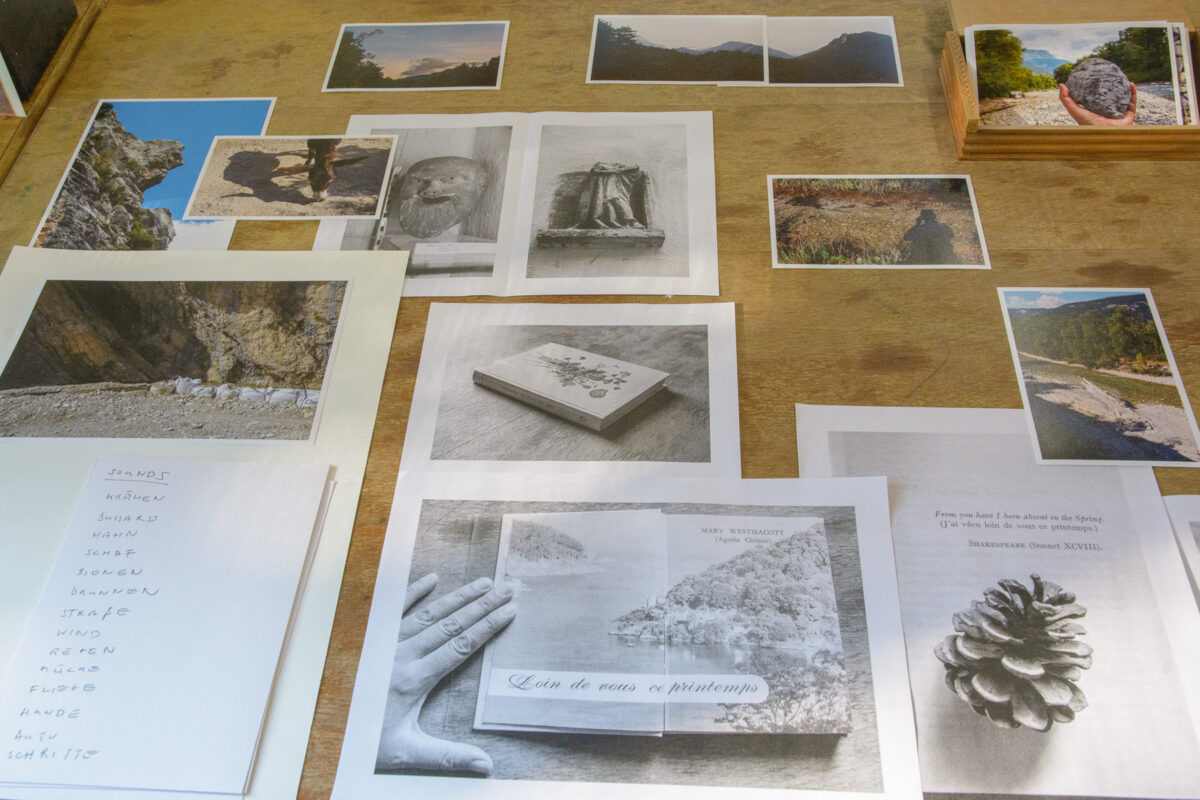
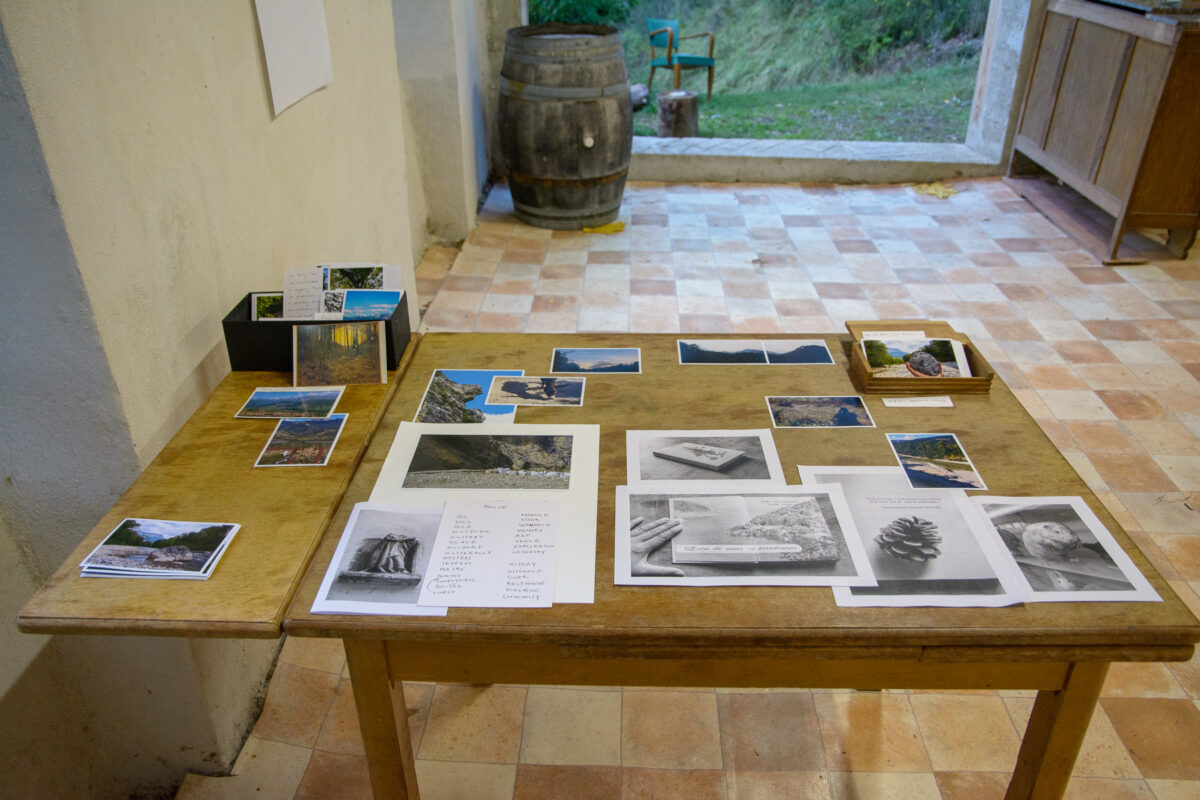
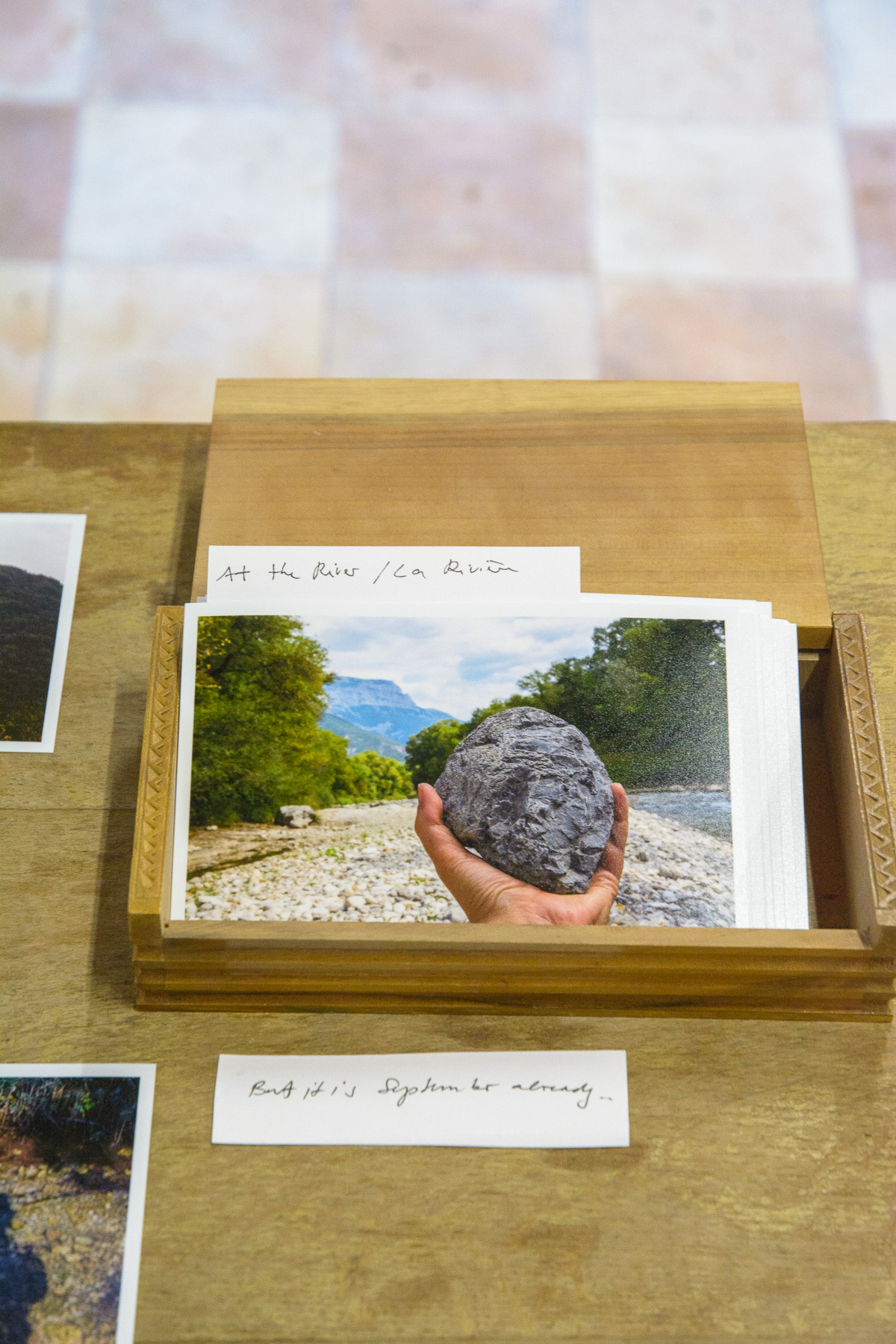
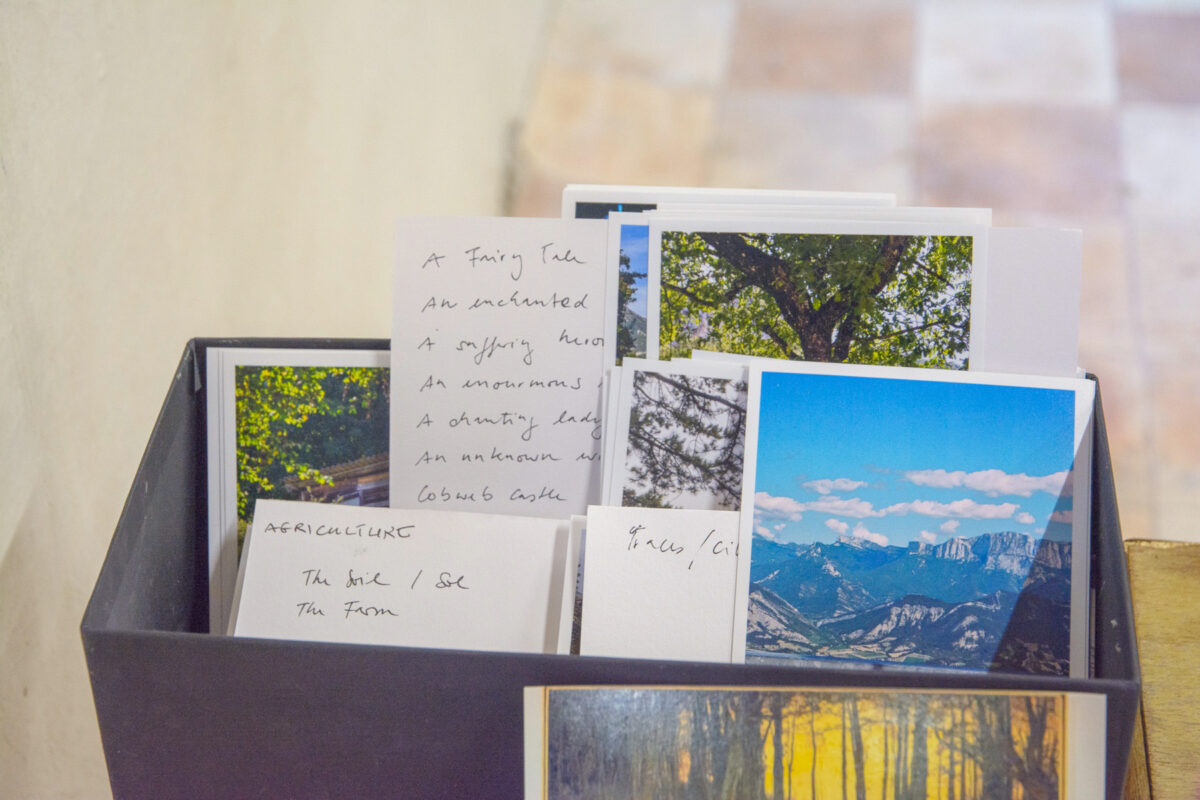
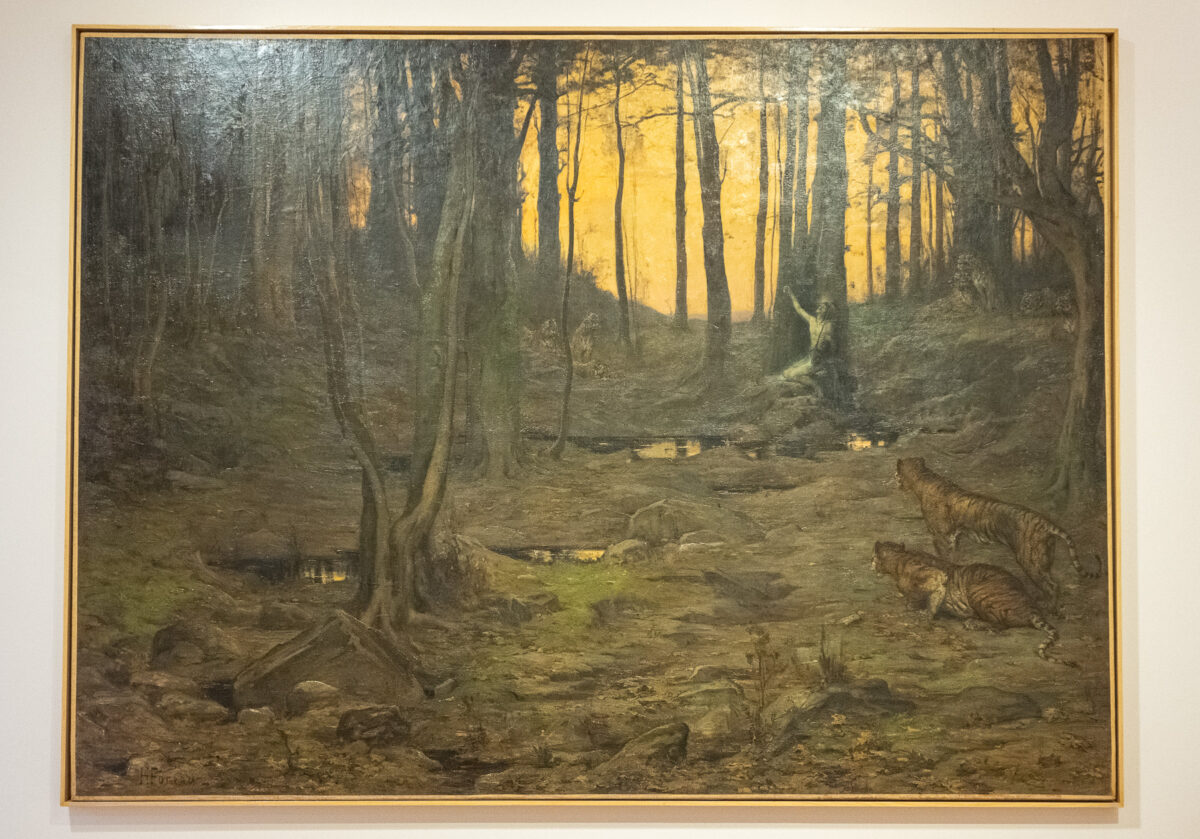
The Poem
William Shakespeare, Sonnet 98: From you have I been absent in the spring
From you have I been absent in the spring, When proud-pied April, dressed in all his trim, Hath put a spirit of youth in everything, That heavy Saturn laughed and leaped with him. Yet nor the lays of birds, nor the sweet smell Of different flowers in odour and in hue, Could make me any summer’s story tell, Or from their proud lap pluck them where they grew: Nor did I wonder at the lily’s white, Nor praise the deep vermilion in the rose; They were but sweet, but figures of delight Drawn after you, – you pattern of all those. Yet seem’d it winter still, and, you away, As with your shadow I with these did play.
